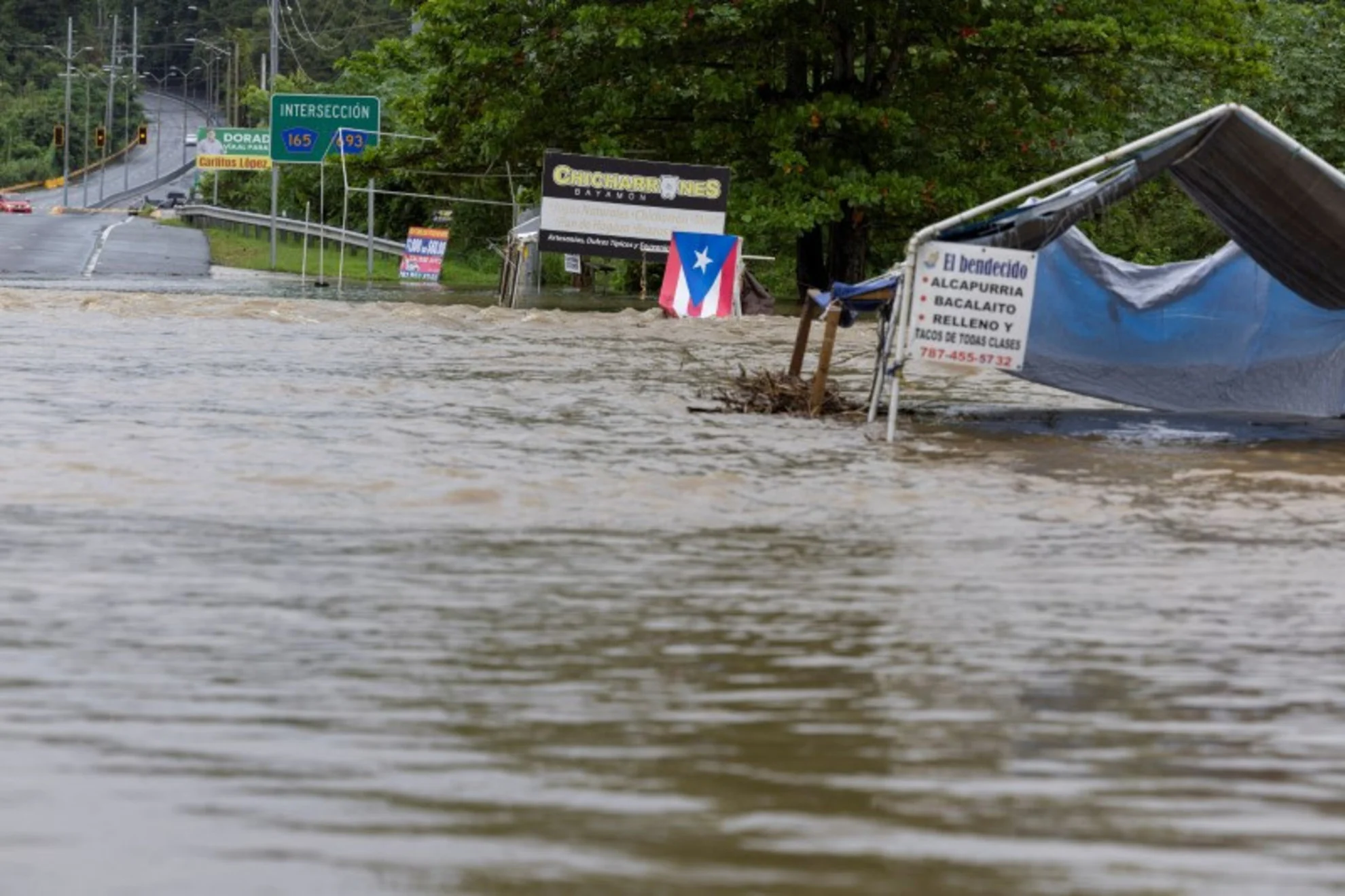
Hurricane Ernesto leaves half of Puerto Rican customers without power
By Ivelisse Rivera and Liya Cui
SAN JUAN, Puerto Rico (Reuters) - About half of all homes and businesses on Puerto Rico were without power on Wednesday as Hurricane Ernesto churned north into the warm waters of the Atlantic after dumping torrential rain on the U.S. territory.
More than 725,000 homes and businesses on the island were without electric service out of a total of about 1.5 million customers, according to LUMA Energy, the Caribbean island's main power supplier.
RELATED: What we know so far about potential Ernesto impacts to Atlantic Canada
Juan Saca, LUMA's president and chief executive, said he was unable to specify the extent of the damage to the system or how much time it would take to restore power. He said more than 1,500 Saca employees were working in the field.
"We are on the road to reestablish service," Saca said. "We have to evaluate what needs to be done to be able to resolve it."

A bridge submerged by the flooded La Plata River is seen in the aftermath of Tropical Storm Ernesto, in Toa Baja, Puerto Rico August 14, 2024. REUTERS/Ricardo Arduengo
Puerto Rico's power grid is notoriously fragile. In 2022, Hurricane Fiona knocked out power for about 80% of the island's homes and businesses for as long as a month. Five years earlier, Hurricanes Irma and Maria destroyed the island's power grid and caused outages in some areas that lasted nearly a year.
Since Fiona, the U.S. Congress has approved $1 billion in funds to modernize and stabilize the grid in Puerto Rico.
As of Wednesday afternoon, Ernesto, which strengthened from a tropical storm to a Category 1 hurricane earlier in the day, was about 225 miles (365 km) northwest of the Puerto Rican capital of San Juan as it crawled to the northwest, packing winds of about 75 miles per hour (120 kph), the National Hurricane Center said.
The fifth named Atlantic storm of the season, Ernesto should approach the British island territory of Bermuda, about 665 miles (1,093 km) east of North Carolina, by Saturday, with rainfall beginning as early as Thursday, the NHC said. Ernesto could become a major hurricane in about 48 hours, it said.
A storm is considered a hurricane when its sustained winds reach 74 miles mph (119 kph). A major hurricane - a Category 3 or higher - has a sustained wind speed of at least 111 mph (179 kph).
Luis Muñoz Marín International Airport in Puerto Rico resumed operations on Wednesday afternoon after canceling 145 flights over the last two days.

A drone view shows a part of a bridge submerged by the flooded La Plata River in the aftermath of Tropical Storm Ernesto in Toa Baja, Puerto Rico August 14, 2024. REUTERS/Ricardo Arduengo
Before the effects of Ernesto fully pass, the U.S. Virgin Islands - to the east of Puerto Rico - may get a total of up to 6 inches (15.2 cm) of rain, while rainfall totals of up to 10 inches (25.4 cm) were expected for southeastern Puerto Rico.
Tropical storm warnings for the Virgin Islands, Puerto Rico and nearby islands were discontinued on Wednesday afternoon, but Puerto Rico and the Virgin Islands can expect gusty winds through the rest of the day.
Although there was no official damage report yet, Puerto Rico's agriculture may have taken a hard hit.
Agriculture Secretary Ramón González Beiró said there was damage caused by flooding in banana and plantain farms in some areas, while losses were also expected in coffee and most vegetable crops.
SEE ALSO: Six ways the weather can scar, shift, and snap the Earth itself
Ernesto is the second named Atlantic storm in a week during what is expected to be an intense hurricane season. Slow-moving Debby hit Florida's Gulf Coast as a Category 1 hurricane last week before soaking some parts of the Carolinas with up to 2 feet (60 cm) of rain.
Hurricane Beryl, the first of the season, was the earliest Category 5 storm on record in the Atlantic when it swept through the Caribbean and the Texas Gulf Coast last month, killing dozens of people and costing an estimated $6 billion in damages.
(Reporting by Ivelisse Rivera in San Juan and Liya Cui in New York; Additional reporting by Brendan O'Brien; Editing by Frank McGurty and Sandra Maler)
Thumbnail image courtesy: REUTERS/Ricardo Arduengo









